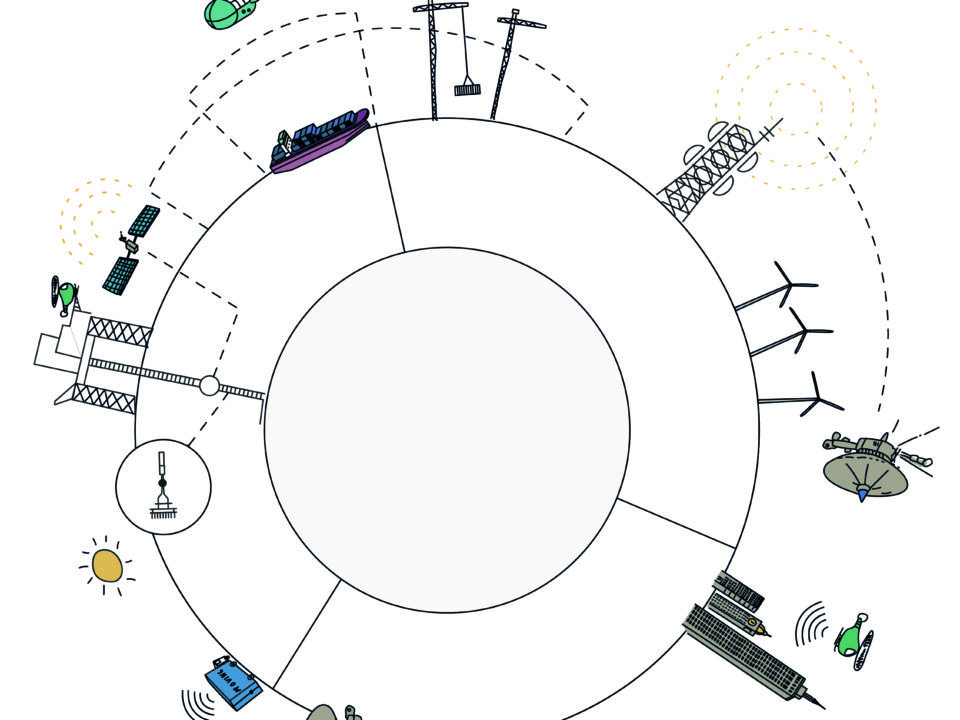Euractiv: Silicon Valley giants want to smash standards and grab internet of things
An internet of things based on shared open standards is under threat from Silicon Valley. And EU policymakers could stop them, writes Francisco Mingorance in EurActiv.
Companies developing open connectivity standards are under threat from Silicon Valley’s gatekeepers, who are attempting to wrestle away control of these innovative technologies in order to dominate the internet of things.
Their game plan is to undermine the financial basis for shared open standards and replace them with alternative proprietary solutions.
European policymakers need to put a stop to this if they want to protect the European digital economy, innovation, interoperability and quick consumer access to the best technologies.
Freeriding on innovative European connectivity standards
Europe excels in developing innovative connectivity standards. Many of Europe’s pioneering technology brands, like Ericsson, Nokia and Orange, have focused their business operations on developing the open standards, like 2G, 3G, and 4G, that make it possible for your smartphone and tablet to connect to other devices.
They enable all the services that we currently enjoy – like online messaging, mobile payments, music downloads and e-ticketing – as well as guaranteeing device interoperability between brands.
For two decades, European innovators have contributed their intellectual property to these open standards and allowed manufacturers to integrate 2G, 3G, and 4G patents into their hardware immediately, without having to first negotiate a contract.
In return, manufacturers are expected to pay a Fair, Reasonable and Non-Discriminatory (FRAND) license fee.
A 2015 study into FRAND licence fees in the global mobile phone market, for example, showed that the average royalty fee for access to all these standards was around €6 per phone, while the average mobile phone sale price was approximately €185.
Unfortunately, despite this small fee, non-payment or “patent freeriding” is growing among global tech giants. One recent study found the proportion of devices using standards without licences has grown internationally from 27% in 2006 to over 60% in 2016.
The proximity of IoT has escalated freeriding, at the risk of innovation
When the revolutionary fifth generation of open connectivity standards is ready in Europe after 2020, driverless cars will use 5G to be constantly connected and responsible for safety features, hugely increasing their market value. A vending machine may occasionally use 5G to order restocking.
FRAND-based licence fees take this disparity into account by basing fees on the economic value that a standard adds to a product. Silicon Valley companies want this to change.
Rather than agreeing to pay licence fees based on this decades-long industry best practice, American tech giants are responding to the proximity of 5G standards by claiming licence fees are a “tax” on their activities. Royalties are not a tax. They support a system that enables all “things” to be interoperable by using 5G open standards, seamlessly connecting objects across the world.
The real goal of the Silicon Valley giants is to destroy the financial basis for open standards sharing and to replace them with alternative proprietary solutions.
In 2015, Silicon Valley giants hijacked a committee of the IEEE — a US standards body that develops, among others, the WiFi standard — to rewrite its intellectual property rights policy and exponentially reduce licence fees. That removed incentives for companies to invest millions of dollars in creating open connectivity standards that could benefit the world.
As a result, the IEEE’s own data show a trend towards organisations becoming unwilling to grant licenses to their WiFi-related IP under the changed patent policy. There is growing uncertainty about whether the IEEE will be able to formally adopt new standards to support the future evolution of WiFi technology.
Research released in March 2017 found that if the IEEE rule change were imposed in Europe, “a decline in overall European R&D of 8% could be precipitated, yielding a negative impact on GDP figures of 0.5% in the long run. Such an impact would amount to €465 billion (at 2016 rates)”.
This now seems all too possible. In Europe, the same cabal is aggressively lobbying EU institutions to change the definition of FRAND-based licence fees.
Such a system would make it impossible for standards developers to receive a fair return on investment for their innovations, and for implementers with lower market potential (like a vending machine manufacturer) to operate in the internet of things.
Any decline in industry investments and technology contributions to open standards will lead to an increase in the use of proprietary solutions. The owners of proprietary solutions can act as ‘gatekeepers’ to impose conditions on industries that could deprive them of the ability to bring new products to the market or to derive value from data generated by the equipment they have manufactured.
The question for European policy-makers
We now await a communication from the European Commission on FRAND licensing this autumn.
In finalising and responding to that document, European policymakers should ask themselves, “Do we want the internet of things to be built on strong open standards that encourage innovation and competition? Or to be dominated by a handful of Silicon Valley giants that can impose conditions on other industries?”



